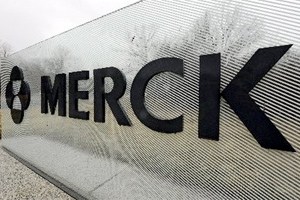 Merck & Co has signed a $605m deal with Israeli biotech cCAM Biotherapeutics in the hope of finding the next-generation of treatments for oncology.
Merck & Co has signed a $605m deal with Israeli biotech cCAM Biotherapeutics in the hope of finding the next-generation of treatments for oncology.
Under terms of the agreement, Merck will acquire all outstanding stock of cCAM in exchange for an upfront payment of $95m in cash.
In addition, cCAM shareholders of record are eligible to receive a total of up to $510m associated with the attainment of certain clinical development, regulatory and commercial milestones.
The deal will focus on the research and development of cancer immunotherapies, with Merck aiming to build on the success of its melanoma and lung cancer drug Keytruda (pembrolizumab).
This treatment works as a PD-1 inhibitor and is part of a new market of cancer immunotherapies that seek to teach the body’s immune system to kill cancerous cells.
Keytruda was approved just last year and is expected to make blockbuster sales for Merck, but the US firm is not going to rest on its laurels, and is looking with this latest deal to find the next-generation of cancer drugs in this area.
The deal sees Merck gain access to cCAM’s lead pipeline candidate, CM-24 – a monoclonal antibody targeting the immune checkpoint protein CEACAM1.
This is currently being evaluated in a phase I study for the treatment of advanced or recurrent malignancies, including melanoma, non-small-cell lung, bladder, gastric, colorectal, and ovarian cancers.
Dr Roger Perlmutter, president of Merck Research Laboratories, said: “The acquisition of cCAM supports our objective to advance the care of patients with cancer by stimulating tumour-directed immune responses.”
Financial results
The news of the deal came as the firm also released its financial results, as second-quarter pharmaceutical sales declined 6% to $8.6bn, including a 9% negative impact from foreign exchange.
Excluding the impact of exchange, Merck said growth was driven by sales in the core therapeutic areas of hospital acute care, oncology and diabetes.
In the past six months, type II diabetes treatment Januvia (sitagliptin) remains the firm’s biggest-selling drug, bringing in $1.92bn, with the combination therapy Janumet adding just over $1bn to that total. Early sales of Keytruda, at $110m for the past six months, showed a strong trajectory for the drug.
Merck also said it expects to see an increase in overall revenue from its recent $8.4bn purchase of Cubist Pharmaceuticals, the maker of blockbuster antibiotic Cubicin, which made $480m.
But Merck has been hit by the on-going erosion to its cardiovascular and cholesterol drugs Zetia (ezetimibe) and Vytorin (ezetimibe/simvastatin). This is primarily due to loss of exclusivity of Zetia in Canada and declines of both products in the US.
The firm has also been hit by lower sales of its major blockbuster Remicade (infliximab), a treatment for inflammatory diseases, due to loss of exclusivity in Europe. Sales were $956m, a drop of 21% on the year-before period.
Finally, sales of its hep C drug Victrelis (boceprevir) has also been poor given the success of new treatments from Gilead and BMS, which has gained major market share over Merck’s older medicines.




